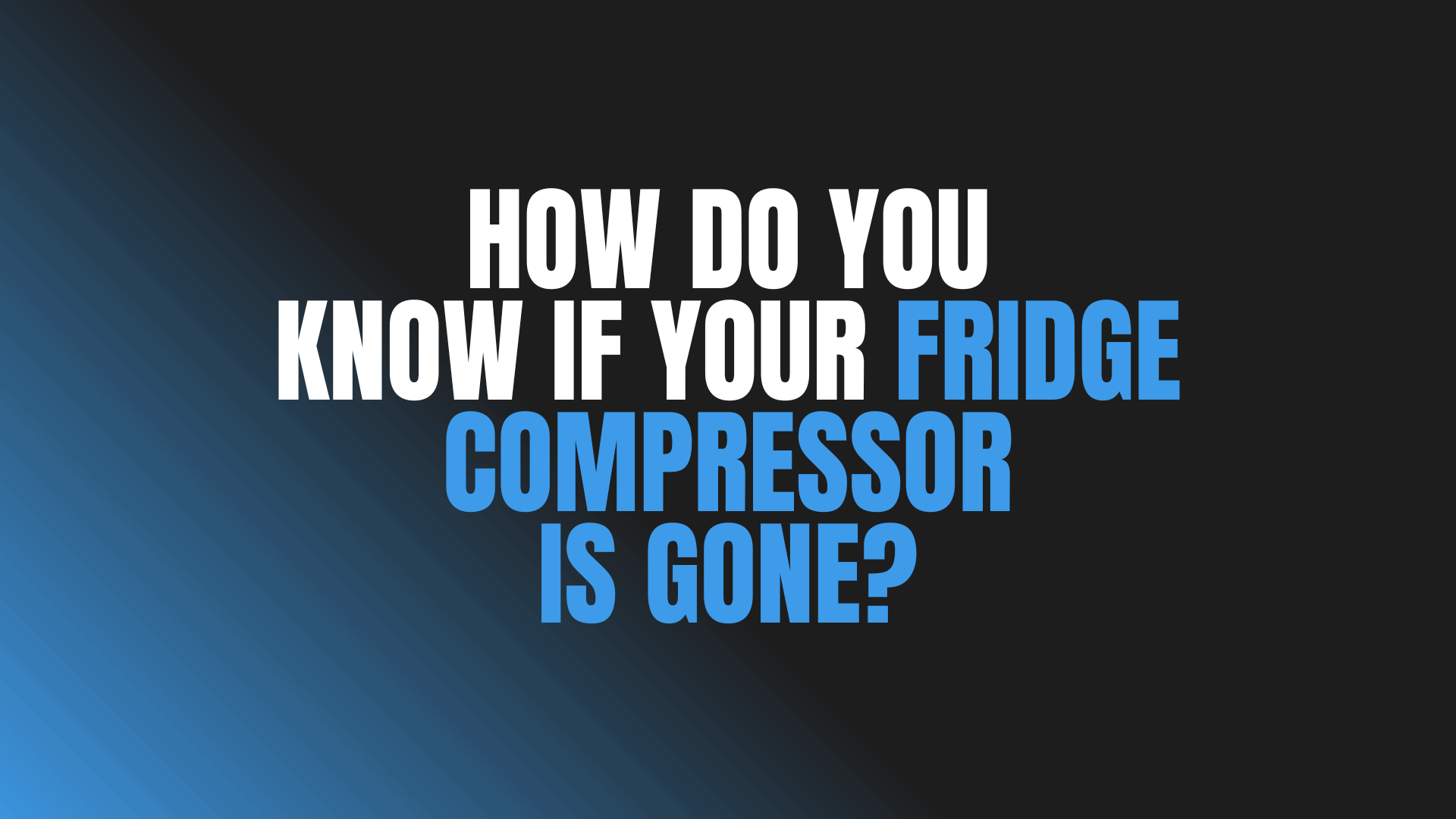
Question: How Do You Know if Your Fridge Compressor Is Gone?
Answer: You know if your fridge compressor is gone if the fridge isn’t cold, the compressor isn’t running, and you don’t hear a humming sound or feel vibrations. You may also notice a burning smell.
Troubleshooting a Broken Refrigerator
A malfunctioning refrigerator can disrupt daily life. Food spoils, routines change, and frustration mounts. One of the most critical components of your fridge is the compressor, the heart of its cooling system. This article explains how to identify a failing or failed compressor. It offers clear, actionable steps to determine if your refrigerator’s compressor requires professional attention. We’ll explore common signs, simple tests, and solutions. Understanding these indicators will help you diagnose the issue and decide on the next steps, whether it’s a simple fix or contacting a repair technician.
This guide helps you answer the question: “How do you know if your fridge compressor is gone?” The compressor circulates refrigerant, absorbing heat from inside the fridge and expelling it outside. A broken compressor disrupts this cycle, leading to warming temperatures and food spoilage. Early detection saves you time, money, and the inconvenience of a fully broken appliance.
Signs of a Failing Compressor
Several signs indicate a failing compressor. One of the first indicators is a consistently warm fridge. If your refrigerator feels warmer than usual, even after adjusting the thermostat, a faulty compressor may be the culprit. Listen for unusual sounds. A humming or clicking noise, louder than normal operation, suggests a struggling compressor. A completely silent compressor also points towards a problem.
Check the back of your refrigerator. You should feel heat radiating from the condenser coils during normal operation. If the coils feel cool, the compressor may not be working correctly. Another indicator is a constantly running compressor. A compressor that runs continuously without cooling the fridge indicates a problem with its ability to effectively regulate temperature.
Click here to read more about Blue Kitchen Refacing
Related Article: Is It Cheaper To Buy a New Fridge or Replace the Compressor?
Related Article: How Long Should a Compressor Last on a Refrigerator?
Checking the Compressor Start Capacitor
The start capacitor provides the initial boost of power needed for the compressor to start. Like the relay, a failing capacitor can prevent the compressor from functioning. You can test the capacitor using a multimeter specifically designed for capacitor testing. Disconnect power to the refrigerator. Locate the capacitor, usually near the compressor. Carefully discharge the capacitor before removing it. Follow the instructions provided with your capacitor testing multimeter for accurate results.
A bad reading indicates a faulty capacitor. Replacing a capacitor is usually a straightforward process, and new capacitors are readily available. If both the relay and the capacitor test fine, the issue likely lies within the compressor.
Inspecting the Condenser Coils
Dirty condenser coils impede heat dissipation, putting extra strain on the compressor. Locate the condenser coils, typically at the back of the fridge. Unplug the refrigerator and carefully clean the coils using a brush or vacuum cleaner. Remove any dust, pet hair, or debris that may be blocking airflow. Clean coils improve efficiency and extend the lifespan of your compressor.
Regular cleaning of the condenser coils, every six months or so, is an essential part of refrigerator maintenance. While clean coils may not fix a completely broken compressor, they can certainly improve the overall performance of your fridge and prevent future problems.
Professional Diagnosis and Next Steps
If your fridge still exhibits symptoms of a faulty compressor after checking the relay, capacitor, and condenser coils, it’s time to consult a qualified appliance repair technician. They possess the expertise and equipment to diagnose the issue accurately and advise on the best course of action. Repairing or replacing a compressor is a complex task best left to professionals.
They can also assess the overall condition of your fridge and recommend whether repairing or replacing the entire unit makes more financial sense. While a new refrigerator represents a significant investment, sometimes the cost of repairing an older model with a failing compressor outweighs the benefits.
Conclusion – How Do You Know if Your Fridge Compressor Is Gone?
A broken compressor can significantly disrupt your kitchen’s functionality. By understanding the signs of a failing compressor and following the steps outlined in this article, you can take the first steps in diagnosing the problem. Remember to always prioritize safety and disconnect power before working on any electrical components.
If simple checks and fixes do not resolve the issue, consult a qualified appliance repair technician. Early diagnosis and prompt action can save you time, money, and the inconvenience of a malfunctioning refrigerator. This guide helps you answer the question: “How do you know if your fridge compressor is gone?”. With this information, you can confidently address refrigerator troubles and keep your kitchen running smoothly.

Blue Malue Get in touch with Blue here.
